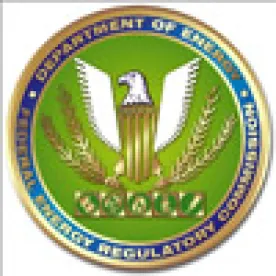On June 19, 2019, a group of natural gas and power trade associations filed a white paper with the Federal Energy Regulatory Commission (FERC) calling for more transparent and efficient enforcement investigations by the agency. The white paper, titled “Enhancing the Transparency, Efficiency, and Fairness of the Federal Energy Regulatory Commission’s Enforcement Program,” was intended as a check-in on FERC Enforcement’s policies in the 13 years since the Energy Policy Act of 2005 was enacted. The paper also commends FERC on promoting a nationwide culture of compliance, and offers several proposals intended to streamline the transparency, efficiency, and fairness of the enforcement process. Those proposals include:
-
Increasing transparency with investigation subjects. Providing information at the outset of an investigation allows subjects to better understand the nature of the investigation and staff’s views and concerns. Encouraging earlier and more frequent meetings with subjects and their counsel to discuss the facts and potential violations leads to a more collaborative approach whereby subjects can better recall and explain the specific conduct. Providing subjects with all relevant data before depositions are taken helps to cut down on inefficiencies and streamline the investigative process. Enforcement should also strive to inform parties in writing when an investigation is closed to provide finality to the process.
-
Creating a procedures manual to shed light on FERC’s investigatory process. Updating the 2008 Revised Policy Statement on Enforcement would provide guidance and certainty to market participants and help ensure that Enforcement approaches investigations with a common process.
-
Allowing subjects to meet with FERC Commissioners after the start of an investigation and prior to the issuance of an Order to Show Cause.
-
Making investigations more efficient by (a) narrowly tailoring discovery requests to the conduct and time frame at issue; (b) utilizing technology-assisted document review processes to reduce the amount of manual attorney time required for standard document reviews; (c) question witnesses through more frequent informal interviews in addition to requisite formal depositions; and (d) complete fact gathering in six months or explain the reason for the delay.
-
Ensuring civil penalties are not higher than necessary to achieve compliance. Penalties should be transparent, understandable, fair, and reasonable.
-
Formally repealing the Notice of Alleged Violations (NAV) policy, which FERC did on May 16, 2019.
-
Improving market participation and liquidity through reforms to FERC’s price reporting policy. FERC’s current price reporting policy increases regulatory risk for price reporters. To combat this, FERC should (a) change the self-audit requirement from an annual to a biannual requirement; (b) allow market participants to price report in either the daily or monthly market without risk of such reporting being considered “selective”; and (c) clarify and strengthen the safe harbor provisions.
-
Addressing the statute of limitations policy in light of court rulings by deciding as a matter of policy to file de novo review actions under the Federal Power Act in federal court within five years of the unlawful conduct.
-
Improving the transparency and efficiency of audits by keeping the scope of the audit defined, using standardized data requests, and clearly communicating to the subject the status and timeline of the audit.
It is unclear how or whether FERC and its Enforcement Division will address the proposals in the white paper, but the authors offer several common-sense proposals that will streamline the enforcement process, make it more fair to targets, and provide increased guidance to all market participants. FERC has already discontinued the NAV policy, issues annual reports of Enforcement’s activities, and resolves many investigations without penalty. The additional steps the white paper recommends will expand transparency and assist the industry in complying with the FERC’s statutes, regulations, and policies.



 />i
/>i


